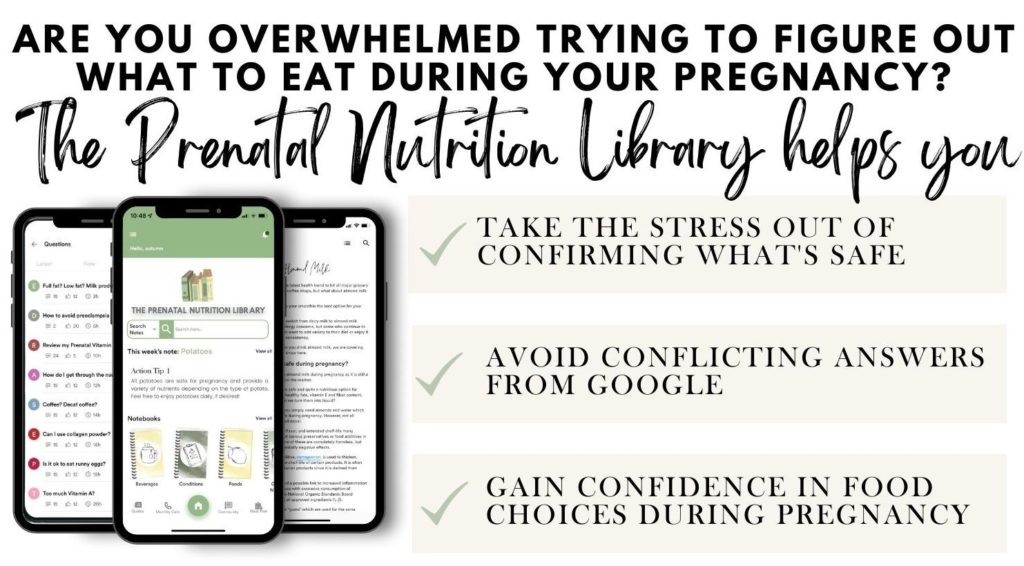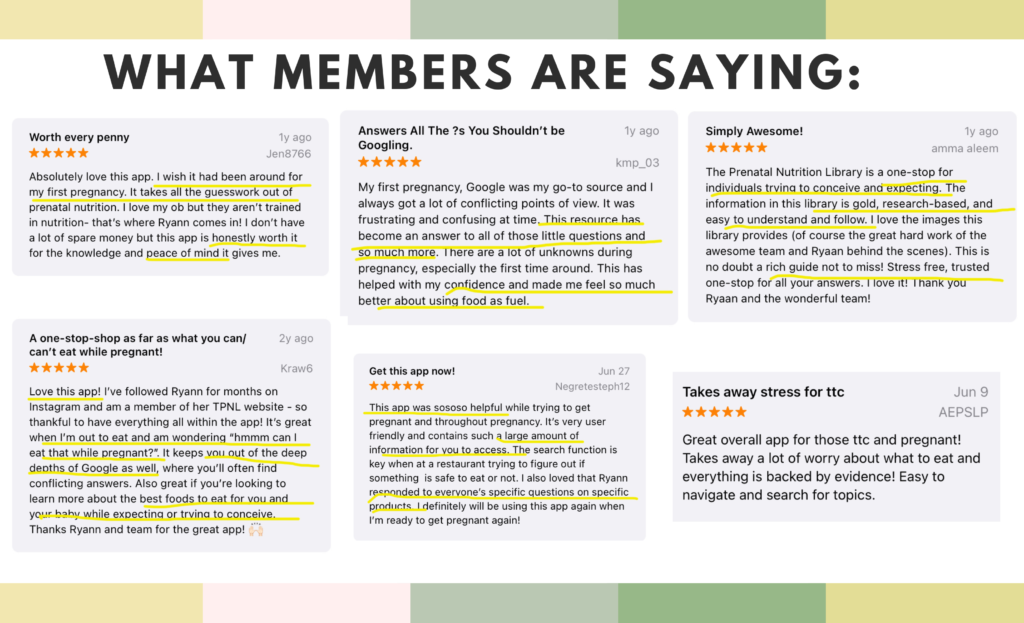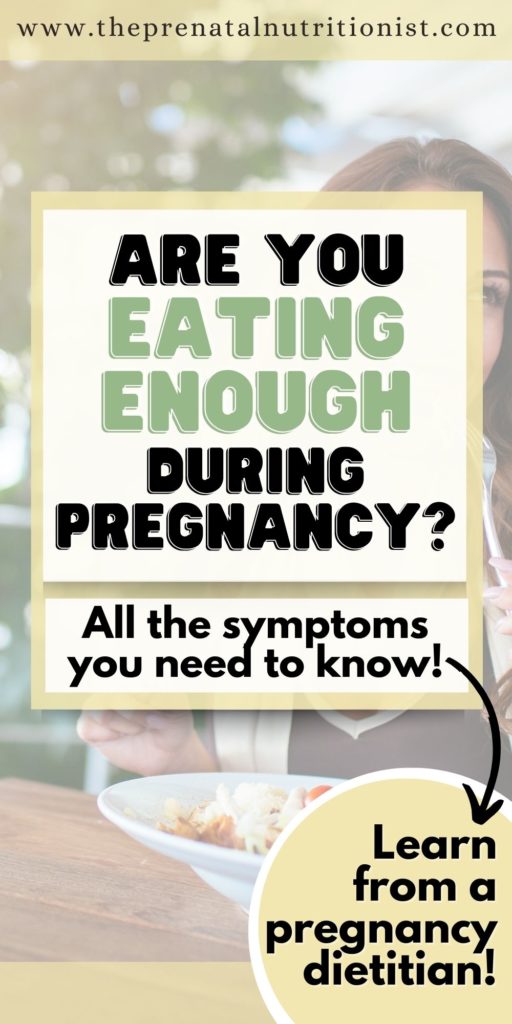
Eating well-balanced meals and meeting nutrient needs during pregnancy cannot be over-emphasized. Yet, it is also understandable that growing a baby brings significant changes that can impact a woman’s relationship with food. Between morning sickness, food aversions, nausea, and other symptoms, it’s not uncommon for expectant mothers to experience periods of decreased appetite. It’s also common for certain nutritious whole foods to seem less appetizing than usual.
The need for multiple essential nutrients increases during pregnancy to support maternal health and the developing fetus. Adequate calories, protein, and micronutrients are essential for the baby’s growth and development. Adequate nutrition is also important for the overall well-being of the pregnant woman herself. While it’s normal to have days with less of an appetite, a persistent inability or struggle to consume sufficient nutrients could pose certain pregnancy risks.
Every expectant mother wants the very best for her baby! So, it’s understandable if you’re unsure if your diet supplies all the necessary nutrients. Vitamins, minerals, protein, fat, fluids, and fiber are all necessary for the growing baby’s development during the next nine months. How, then, will you know if you’re not eating enough?
Today, I will be looking at some potential symptoms that could indicate a pregnant woman or her baby may not be receiving adequate nutrition through her diet. Understanding these warning signs can help you prioritize listening to your body and getting needed nutrition support!
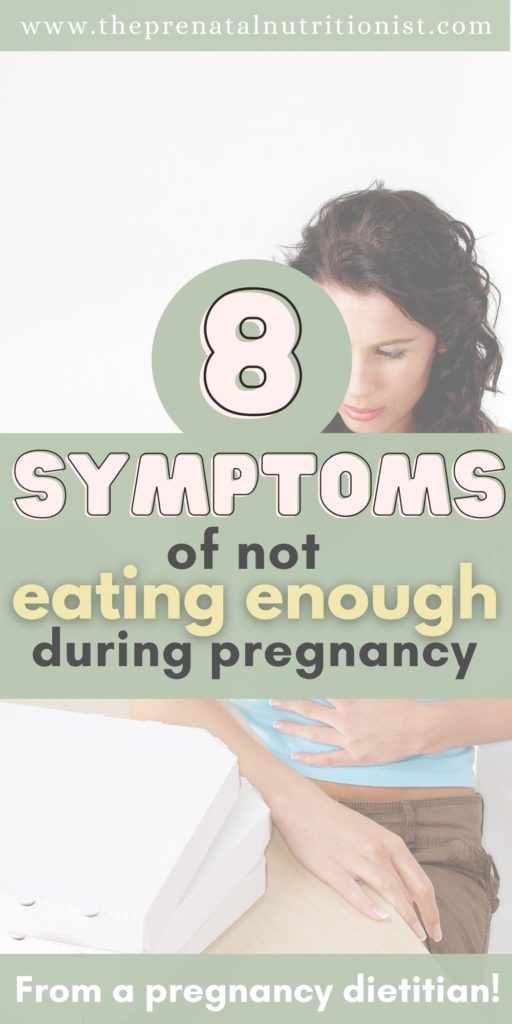
Symptoms of Not Eating Enough While Pregnant
Constant Hunger
Everyone’s calorie needs during pregnancy will be different. Your body does need enough calories to support the growing baby’s nutritional needs as well as your own. If you are struggling to eat or consume enough food, you may experience constant feelings of hunger as your body still needs more nutrients and calories for the day. Constant hunger could also be a sign you’re not eating enough protein.
For more information on determining calorie and protein needs while pregnant, head to The Prenatal Nutrition Library.
Low Energy & Fatigue
The sense of feeling exhausted all the time is common during pregnancy, especially in the first trimester. However, chronically low energy levels and fatigue that interfere could signal that a pregnant woman is not getting adequate calories, protein, or even iron, which all help to support energy levels. When these nutritional needs are unmet, expectant mothers may feel tired. Taking a few days to write down what you’re eating can show you how many calories and protein you’re consuming.
Poor Sleep Quality
Insomnia and restless sleep are common pregnancy complaints. For those struggling to eat enough, disrupted sleep may be worsened. Not eating enough could impact sleep by contributing to low blood sugar levels at night. Low blood sugar impacts hormone balance and, therefore, quality of sleep. Prioritizing a dinner meal with protein, fat, and fiber can help. Trying a before-bed snack with protein and fat may also be beneficial to help address under-eating while pregnant.
Check out my roundup of the best dinner ideas during pregnancy to help you get a good boost of the protein and nutrients you need for sound sleep!
No Weight Gain or Slow Rate
Weight gain during pregnancy during pregnancy will look different for everyone. However, it is one way to evaluate whether a pregnant person meets the nutritional needs for healthy fetal development. In some circumstances, very little or no weight gain could indicate insufficient calorie consumption from whole foods to support growth needs. Be sure to continue follow-up appointments with your provider to check in on the baby’s growth.
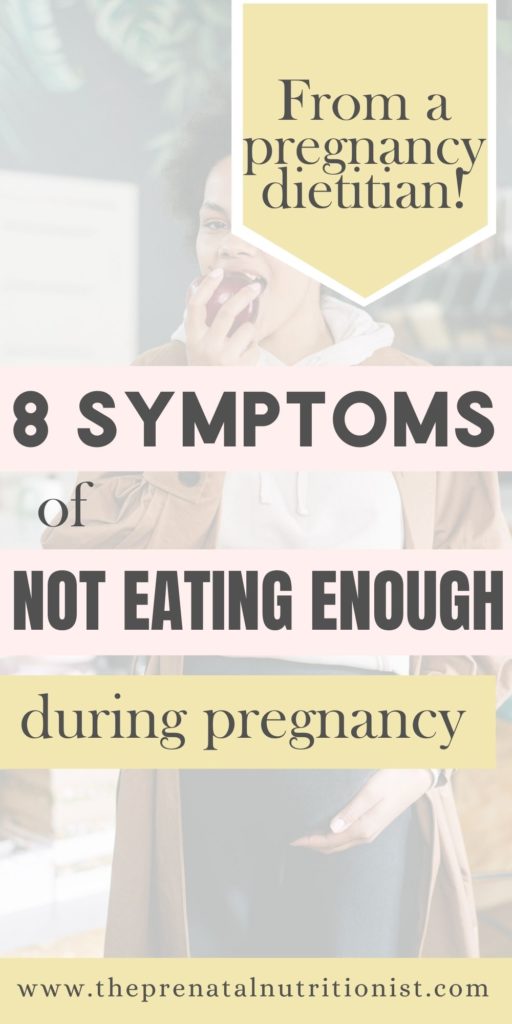
Hair Loss
One aspect of maintaining thick, healthy hair is consuming ample protein, vitamins, and minerals in the diet. Hair shedding above normal could suggest nutrient deficiencies due to inadequate intake. When the body doesn’t receive adequate nutrition, it prioritizes essential functions over non-essential ones like hair growth. Protein, zinc, iron, vitamin A, and overall calorie consumption are a few nutrients that play a role in hair health.
Constipation
Getting enough fiber from fruits, vegetables, and whole grains helps support regular bowel movements. A diet lacking these food groups produces less bulk in the stool and possibly contributes to harder stools. Consuming enough healthy fats in the diet also helps to promote bowel regularity.
Iron Deficiency/Anemia
Sufficient iron intake is crucial for pregnant women as they need extra iron to feed their rapidly developing baby and replenish their iron stores. Those struggling to eat iron-rich foods like red meat, poultry, fish, and cooked shellfish may be at risk for iron deficiency. This, in turn, can cause anemia and lead to increased fatigue and complications.
Nutritional Deficiencies
If a pregnant woman’s diet lacks or restricts multiple food groups, the body may not get all the important nutrients required for a healthy pregnancy. Deficiencies in nutrients such as iron, folate, iodine, calcium, vitamin D, or omega-3 fatty acids can result from not eating enough during pregnancy.
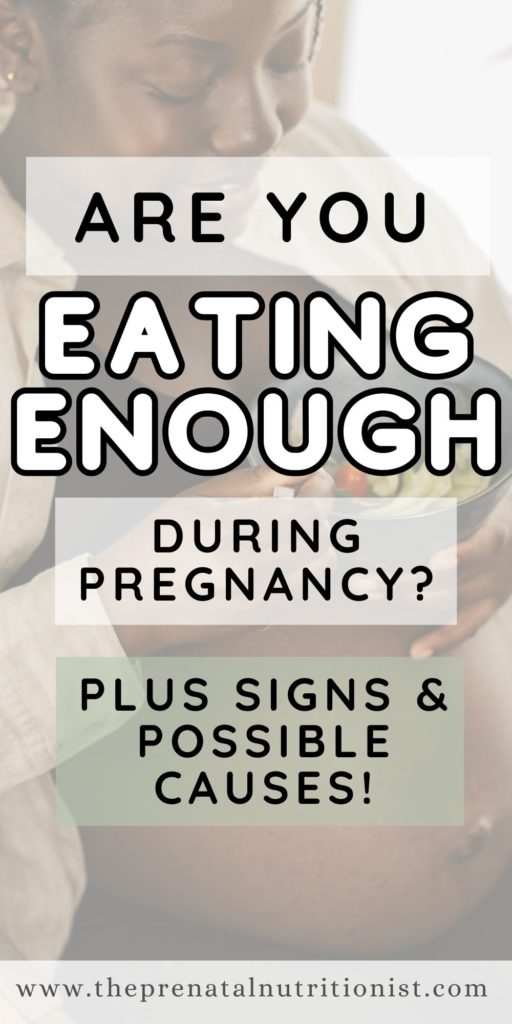
Possible Causes of Not Eating Enough During Pregnancy
Food Aversions and Decreased Appetite
Unfortunately, food aversions are not uncommon during pregnancy. The good news is that for many people, most aversions dissipate after the first trimester. However, when multiple food aversions hang around and negatively impact appetite to the degree that daily calorie and nutrient needs are chronically unmet, it could put both mom and baby at risk. Consultation with your provider and a dietitian is advised to find solutions for severe appetite loss during pregnancy.
More on how to deal with food aversions during pregnancy HERE.
Nausea and Vomiting
“Morning sickness,” characterized by nausea and vomiting in pregnancy, is a common symptom, especially in the first trimester. It can make it hard to eat much at all for several weeks of pregnancy. It’s 1000% okay to eat what you can keep down during this time. Surprisingly enough, sometimes, having an ’empty stomach’ exacerbates nausea. If you can, try to take a few bites of something, ideally a protein source, first thing in the morning to help curb nausea.
We can try many things to reduce feelings of nausea and help you get more nutrients into your diet. Check out my list of the best juices for nausea during pregnancy for insight on incorporating juices to curb nausea.
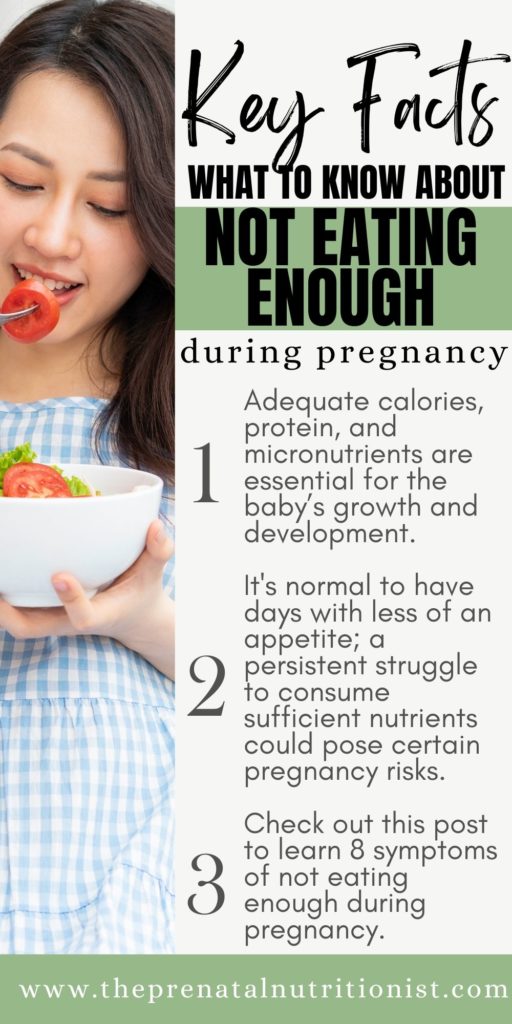
In summary, while it’s common for appetite and food preferences to fluctuate during pregnancy, consistently experiencing symptoms highlighted here could suggest a pregnant woman is not eating enough to meet nutrient needs.
Getting support and developing a plan is important if you’re facing challenges in this area. Work with your provider and dietitian to find solutions to ensure you eat enough while pregnant. If you feel you’re struggling with one or more of these symptoms, be sure to talk to your doctor.
Small, frequent meals and snacks, protein powders, incorporating plenty of healthy fats, and IV nutrition if severe nausea and vomiting persist are potential interventions that may help overcome obstacles causing dietary inadequacy. Formulating meals and snacks that curb nausea and upset stomach can help battle poor appetite and nutritional deficiencies. Consuming enough and meeting nutrient needs is important to support the baby’s development and reduce the risk of complications like low birth weight.
For more in-depth information on nutrition during pregnancy and expert-crafted meal plans, check out The Prenatal Nutrition Library (TPNL). The Prenatal Nutrition Library is your one-stop shop for evidence-based answers to all your pregnancy nutrition questions–so you know what you eat is safe and provides optimal nutrients for pregnancy. Want to try a sample meal plan first? Download my FREE 1-week meal plan for pregnancy!



